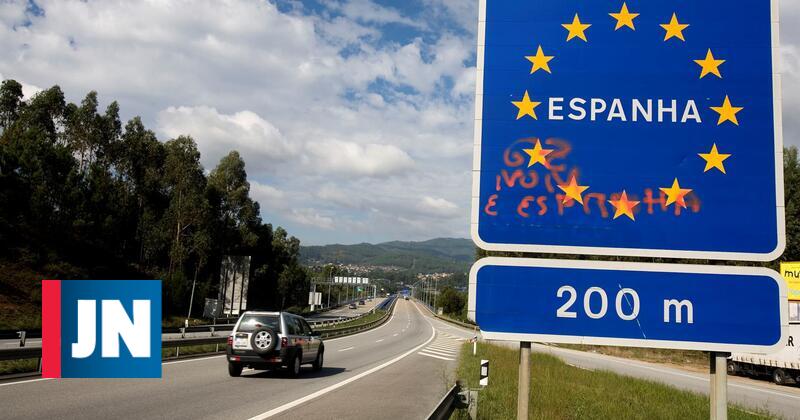The Madrid government wants to increase fuel taxes to speed up decarbonization and bring taxes closer to other European countries.
Crossing the border to fill up your car at cheaper rates has become a habit for many Portuguese people who live at the border, but they may soon stop paying. According to a now known proposal, the Spanish government intends to impose a historic increase in fuel taxes to accelerate decarbonization of the economy in the coming decades.
The Spanish press reports increases of up to about 20 cents, bringing the tax burden closer to that of the eight main EU countries on gasoline: Austria, Germany, Belgium, Denmark, Finland, France, the Netherlands and Sweden. At the European Union’s eighth role in Spain 2050 Report. Foundations and proposals for a long-term national strategy.
If the indicated increase is confirmed, and with references to average values for the first quarter of this year, the price of a liter of gasoline in Spain will be only five cents lower than in Portugal. The average price of 95 unleaded gasoline at Portuguese pumps for the first three months of the year was 1.50 euros, while at Spanish service stations it was 1.25 euros. That’s a difference of 25 cents.
The weight of the taxes also shows a large disparity between the two countries: in Portugal, taxes weigh 63.2% on the selling price to the public (PVP). In Spain, the rate is 55.1%, which is eight percentage points lower. Compared to the group of eight countries identified in the report, the average weight of taxes on gasoline prices is about 63% (in Portugal it was 63.2% in the first quarter of this year).
But on the diesel tax, Pedro Sanchez’s government wants to act first, in a war against diesel.
Diesel: minus 8 cents
On average, in Spain, diesel is 8 cents cheaper than petrol, and compared to Portugal, the difference is even greater. Again, taking into account the figures for the first quarter of this year, the price of a liter of diesel on the other side of the border was 1.13 euros. In Portugal, in the same period, the price of a liter of diesel was 1.32 euros, which is 19 cents more expensive.
The document justifies this fuel tax policy by the need to adapt to new forms of mobility in the next three decades. The document states, “There will be fewer private vehicles, more shared vehicles, more bicycles, and more public transportation.”
Mobility will be transformed with the spread of the electric vehicle, which will become increasingly economical and competitive, and which will make up the bulk of the Spanish fleet by mid-century,” assuming that there will still be internal combustion vehicles, specifically for long-distance charging and transportation, but “more efficient and less polluting.” for fuel”.
new tax
The document released in May also provides for the creation of a new tax on the use of cars. Madrid intends to replace existing taxes such as purchase, handling and fuel taxes with a tax on the efficient use of a vehicle that takes its characteristics into account.
PR . money
In the recovery and resilience plan, Spain allocated about 40% of the 69.5 billion euros to the green transition and Portugal 38% of the 16.6 billion euros, and this is one of the large areas eligible for spending in the use of money from the bazooka.

“Wannabe internet buff. Future teen idol. Hardcore zombie guru. Gamer. Avid creator. Entrepreneur. Bacon ninja.”

